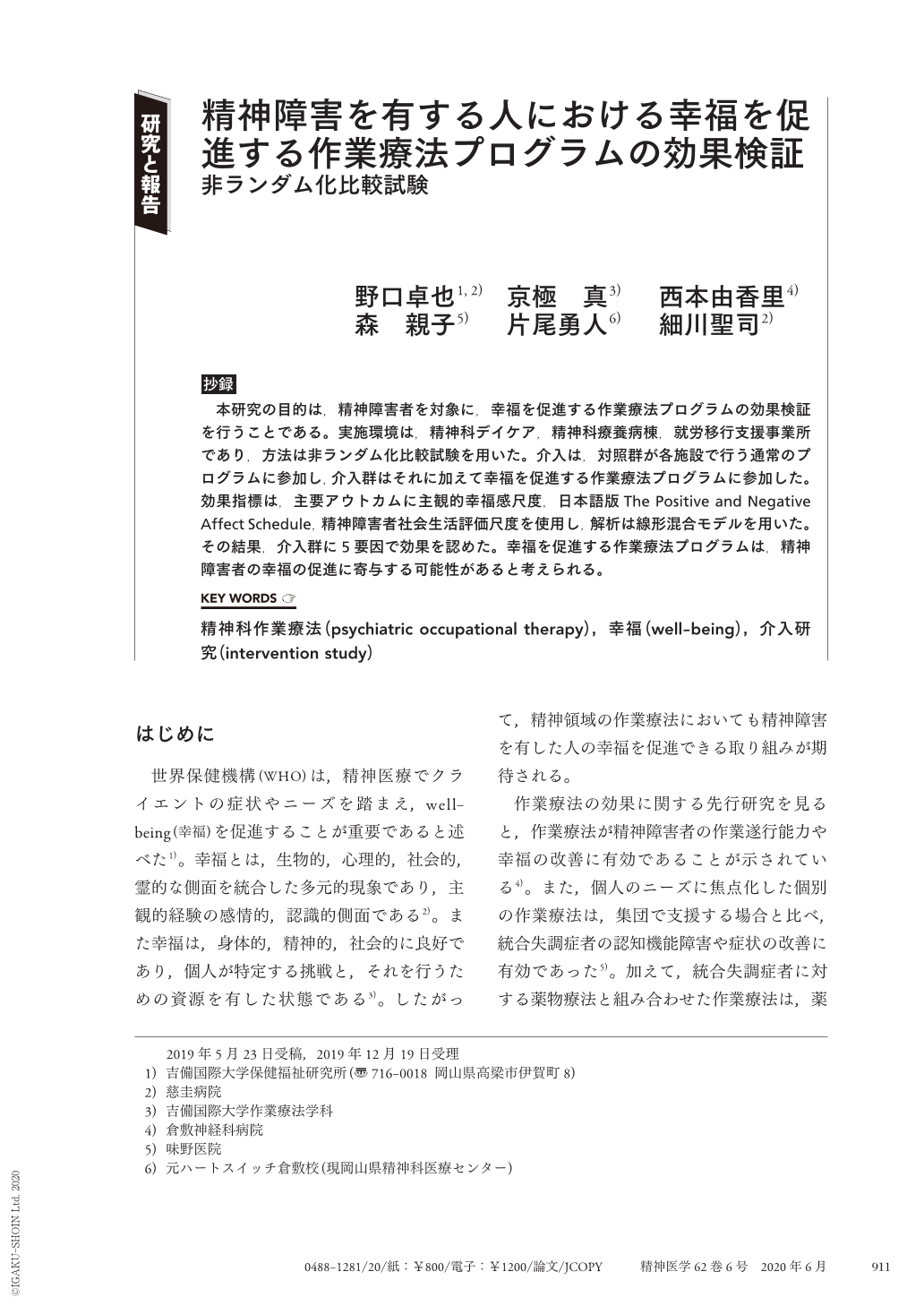Japanese
English
- 有料閲覧
- Abstract 文献概要
- 1ページ目 Look Inside
- 参考文献 Reference
- サイト内被引用 Cited by
抄録 本研究の目的は,精神障害者を対象に,幸福を促進する作業療法プログラムの効果検証を行うことである。実施環境は,精神科デイケア,精神科療養病棟,就労移行支援事業所であり,方法は非ランダム化比較試験を用いた。介入は,対照群が各施設で行う通常のプログラムに参加し,介入群はそれに加えて幸福を促進する作業療法プログラムに参加した。効果指標は,主要アウトカムに主観的幸福感尺度,日本語版The Positive and Negative Affect Schedule,精神障害者社会生活評価尺度を使用し,解析は線形混合モデルを用いた。その結果,介入群に5要因で効果を認めた。幸福を促進する作業療法プログラムは,精神障害者の幸福の促進に寄与する可能性があると考えられる。
Aims:
The purpose of this study was to examine the intervention effect of occupational therapy program promoting well-being in people with mental disorders.
Methods:
This study subjects were users of day hospital, psychiatric occupational therapy, and supported employment agency, and the intervention design adopted a non-randomized controlled trial. The control group participated only in the support programs usually addressed at each facility, and the intervention group additionally participated in the occupational therapy program promoting well-being. The intervention period was 8-weeks for both groups and 8-weeks for follow up. The primary outcome measures used Recovery Assessment Scale(RAS), The Positive and Negative Affect Schedule(PANAS), Subjective Well-Being Scale(SWBS), Life Assessment Scale for the Mentally Ill(LASMI), and WHO Disability Assessment Schedule 2.0(WHODAS 2.0). Secondary outcome measures used Assessment of Positive Occupation 15(APO-15), Equating-Assessment of Positive Occupation(EAPO). The analysis was estimated using a linear mixed model so that the results could be obtained considering the effects of random effects such as individual differences and environmental differences.
Results:
The intervention group showed better intervention effect with 5 factors compared with the control group.
Conclusion:
Occupational therapy program promoting well-being has the potential to contribute to the promotion of well-being for mentally disabled people in medical institutions and welfare institutions receiving assistance.

Copyright © 2020, Igaku-Shoin Ltd. All rights reserved.


